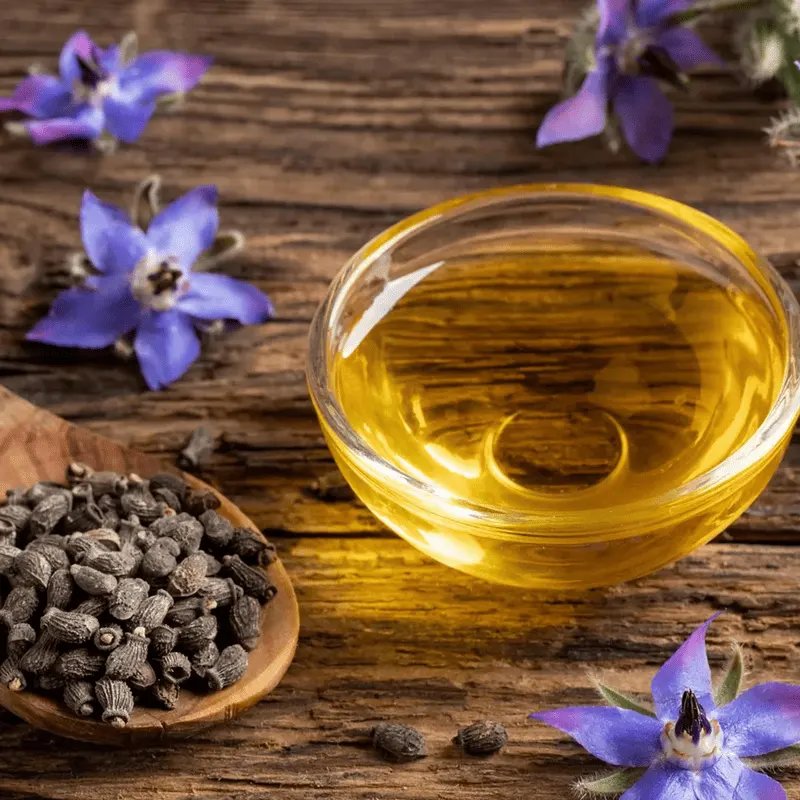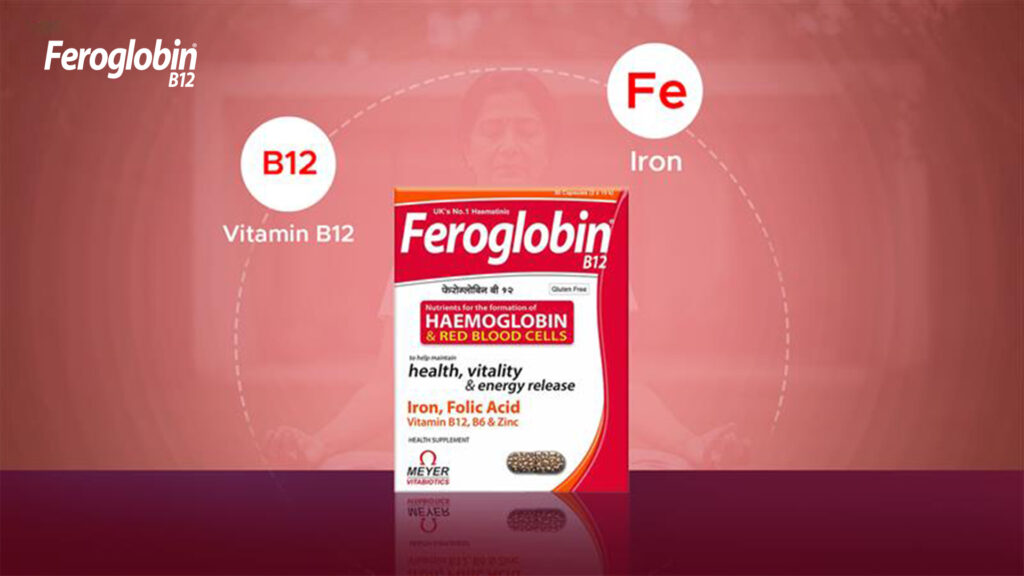Unlocking Hormonal Balance: The Power of Gamma-Linolenic Acid (GLA)

Managing hormonal imbalances can pose difficulties, particularly for women grappling with conditions like premenstrual syndrome (PMS), polycystic ovary syndrome (PCOS), and endometriosis. These ailments give rise to various distressing symptoms that disrupt everyday routines. Nonetheless, the potential of Gamma-Linolenic Acid (GLA) to ease certain PMS and PCOS symptoms while fostering hormonal equilibrium has garnered recognition.
What is Gamma-Linolenic Acid?
Gamma-Linolenic Acid(GLA) is an essential omega-6 fatty acid that plays a crucial role in the body’s biological processes. It is primarily derived from plant sources such as evening primrose oil, borage oil, and black currant seed oil. GLA is known for its anti-inflammatory properties and its ability to support hormonal balance. Once consumed, GLA is converted into beneficial compounds called prostaglandins, which regulate various bodily functions, including inflammation, blood clotting, and hormone synthesis. GLA supplementation has been associated with potential benefits in managing conditions like PMS, PCOS, and inflammatory disorders. However, it is important to consult a healthcare professional before incorporating GLA supplements into your routine.
Role of GLA in PMS:
Premenstrual syndrome (PMS) encompasses a wide range of distressing physical, emotional, and psychological symptoms that occur in the days or weeks leading up to menstruation. Women commonly experience mood swings, bloating, breast tenderness, fatigue, and other discomforts during this phase. Recognizing the impact of these symptoms on women’s well-being, researchers have investigated the potential role of Gamma-Linolenic Acid (GLA) in alleviating PMS.
GLA, an essential omega-6 fatty acid, exhibits remarkable properties that contribute to managing PMS symptoms. Once consumed, GLA undergoes conversion into prostaglandin E1 (PGE1), a beneficial compound involved in hormonal regulation and inflammation modulation. By facilitating the synthesis of PGE1, GLA helps regulate hormonal fluctuations and reduce inflammation, thereby targeting specific symptoms like breast pain and bloating.
Research studies have shown promising results regarding GLA’s efficacy in reducing the overall severity of PMS symptoms. By incorporating GLA supplementation into their routine, women may experience a reduction in mood swings, bloating, breast tenderness, and fatigue. These findings highlight the potential of GLA as a natural intervention for managing PMS symptoms and improving the quality of life for women experiencing monthly hormonal imbalances.
It is important to note that individual responses to GLA supplementation may vary, and it is advisable to consult with a healthcare professional before incorporating any new dietary or supplementation changes. Additionally, further research is still necessary to fully understand the mechanisms and optimal dosages of GLA in PMS management.
Role of GLA in PCOS:
Polycystic ovary syndrome (PCOS) is a complex hormonal disorder that manifests through various symptoms such as irregular menstrual cycles, elevated androgen (male hormone) levels, and the development of ovarian cysts. This condition often brings about challenges such as fertility problems, weight gain, acne, and excessive hair growth (hirsutism). To tackle the multifaceted nature of PCOS, researchers have explored the potential role of Gamma-Linolenic Acid (GLA) as a valuable supplement.
GLA possesses anti-inflammatory properties and plays a crucial role in hormone regulation, making it a promising intervention for managing PCOS symptoms. Studies indicate that GLA supplementation may contribute to regulating menstrual cycles by promoting the proper functioning of reproductive hormones. Additionally, GLA has shown potential in reducing androgen levels, which helps counterbalance the hormonal imbalance characteristic of PCOS. Moreover, GLA’s positive impact on insulin sensitivity has been observed, addressing one of the core issues associated with PCOS—insulin resistance.
By incorporating GLA supplementation into their routine, individuals with PCOS may experience improvements in menstrual regularity, reduced androgen levels, and enhanced insulin sensitivity. These benefits can have a positive impact on fertility, weight management, acne control, and hirsutism.
It is crucial to note that individual responses to GLA supplementation may vary, and it is advisable to consult with a healthcare professional before making any changes to the diet or introducing new supplements. Furthermore, while promising, more research is needed to fully understand the mechanisms and optimal dosages of GLA in managing PCOS symptoms effectively.
Role of GLA in Endometriosis:
Endometriosis is a challenging condition characterized by the abnormal growth of uterine tissue outside the uterus, leading to symptoms such as pelvic pain, infertility, and menstrual irregularities. This condition is often associated with elevated levels of inflammatory substances in the body. Gamma-Linolenic Acid (GLA) presents an intriguing potential role in managing endometriosis symptoms due to its anti-inflammatory properties and its ability to regulate prostaglandin synthesis.
GLA’s anti-inflammatory effects make it a promising candidate for alleviating the pain and inflammation associated with endometriosis. By modulating the production of prostaglandins, which are hormone-like compounds involved in inflammation, GLA may help regulate the inflammatory response and reduce discomfort.
While further research is needed to fully understand the mechanisms and optimal usage of GLA in endometriosis management, some studies have shown promising results. GLA supplementation has demonstrated the potential to reduce pain, alleviate inflammation, and improve the overall quality of life for women living with endometriosis. These findings suggest that GLA may offer a complementary approach to conventional treatment methods for managing endometriosis symptoms.
It is important to note that individual responses to GLA supplementation may vary, and consulting with a healthcare professional is essential before making any changes to the treatment regimen. Additionally, continued research efforts are necessary to fully explore the therapeutic benefits and optimal dosages of GLA for endometriosis management.
Choosing the Right GLA Supplement:
When selecting a GLA supplement, it is crucial to prioritize quality and effectiveness. Opting for a high-quality product ensures that you are getting the most out of your supplementation. Natural sources such as evening primrose oil, borage oil, or blackcurrant seed oil are known to provide ample amounts of GLA, making them favorable choices.
To make informed decisions about your GLA supplementation, it is highly recommended to consult with a healthcare professional. They can provide personalized guidance on the appropriate dosage based on your specific needs and health status. Additionally, they can monitor your progress and make any necessary adjustments to ensure optimal results.
One notable option is Wellwoman by Vitabiotics, a comprehensive supplement that incorporates the benefits of GLA for pain relief in PMS and PCOS, while promoting healthy hormonal balance. Wellwoman also includes other valuable components, such as Vitamin D, which aids in reducing PMS symptoms and offers anti-inflammatory and antioxidant properties. The addition of minerals like magnesium further enhances the supplement’s efficacy by decreasing the production of prostaglandins, thereby alleviating the severity of menstrual pain.
By selecting Wellwoman capsules from Vitabiotics, you can benefit from a well-rounded formula that combines a healthy dose of GLA, essential micronutrients, and specific ingredients targeted at women’s health. Take charge of your body and overall well-being by incorporating a trusted and comprehensive supplement like Wellwoman into your daily routine. Remember to prioritize professional guidance and enjoy the positive impact on your health starting today!
Categories
- Articles (1)
- Beauty, Hair, Skin (19)
- Kids-Teens Health (3)
- Men's Health (14)
- Mind-Body (62)
- News-Research (9)
- Others (2)
- Women's Health (22)
Top Selling Products
Wellwoman 50+ multivitamins for women over age 50 years with Vitamins, Iron, calcium, amino acids to support menopausal symptoms, maintain energy, Vision & Heart health| Vegetarian 30 Tablets
₹516.80 (₹17.23/Tablet)
MRP: ₹646.00 (Upto 20% off)
Wellman 70+ Multivitamin Tablets | Ginseng, Pumpkin Extract & Citrus Bioflavonoids | Supports Health & Vitality | Boosts Vision, Immune System & Cognitive Function | 30 Veg Tablets
₹379.20 (₹12.64/Tablet)
MRP: ₹474.00 (Upto 20% off)
Wellman 50+ Multivitamin Tablets for Men Aged 50+ | Ginseng, Citrus & Amino Acids | Support Health & Vitality | Boost Cognitive & Immune Function | Reduce Tiredness & Fatigue | 30 Veg Tablets
₹360.00 (₹12.00/Tablet)
MRP: ₹450.00 (Upto 20% off)
Wellwoman 70+ Multivitamins For Women Over Age 70 With Biotin, Isoflavones, Zinc, Vitamind To Support Physical & Mental Health, Improve Cognitive Function & Energy Levels Vegetarian 30 Tablets
₹374.40 (₹12.48/Tablet)
MRP: ₹468.00 (Upto 20% off)
Wellman Multivitamin Tablets for Men – 21 Nutrients – Boost Immunity, Support Reproductive Health & Energy Levels – Gluten-Free, Vegetarian – 30 Tablets
₹350.40 (₹11.68/Tablet)
MRP: ₹438.00 (Upto 20% off)










